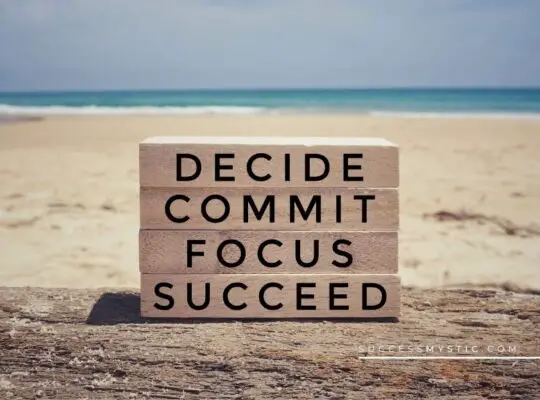A BETTER YOU WAITS!
No matter how healthy and balanced your life is, chances are you are still neglecting some of your most basic needs in life. And if you are like most of us who aren’t so healthy and balanced all the time, that probability is pretty high. So, which of your needs are currently unmet?
Instead of attending to your needs once in a blue moon or when you have time to fit it in, it is necessary to make time for yourself within your daily life. Learning to focus on your own needs regularly, not just now and then, is essential for your personal health and well-being. So, how do you learn to put your needs into your everyday life?
Our guide will share with your helpful tips on learning to identify your needs and refocus on yourself as well as ways to create space and time within your everyday life to make sure your own needs are being met. And, we will start by sharing, just in case you forgot, why taking care of yourself and making sure your needs are met is so very important to your life.
Why It Is Important to Focus on Your Needs
Imagine this scenario. A woman in her mid-thirties has recently ended her ten-year marriage and is in the process of moving into a smaller house. She is dealing with the reality of being a single mother of two young girls while also handling the financial pressure of running a household on her own.
Her days consist of worrying about money, making lunches and dinners for her kids, going to work, trying her best to keep it together, and generally focusing on the needs of everyone else in her life, except for herself.
Suddenly, there comes a day when this woman cannot force herself to do it anymore. She stays in bed for days, can’t take care of her children. Her parents come and help her get back on her feet, but it is many months before she is fully functioning again.
What caused this? I am sure you can tell by now where this story is going. By neglecting her own needs and focusing solely on taking care of the others in her life, this woman reached a breaking point from which it was difficult to return. And over time, her focus on others instead of herself led to a complete inability to take care of anyone.
While this may seem an extreme example, this is precisely what happens when you chronically ignore your own needs and refuse to take care of yourself. Over time, you become less able to care for anyone, including those you love, and your needs have a way of still making themselves known and felt.
Taking care of yourself and attending to your needs is probably one of the least selfish things you can do to show your love for those in your life. If you can’t care for yourself, you will not be able to effectively care for anyone else, either. Learning to honor and value self-care is not a selfish act at all. In fact, it is one of the kindest things you can do for others.
When you attend to your needs, you are in a much better place to help take care of others. There are many reasons why paying attention to what you need is actually serving others, too. Here are just a few.
You Are No Good for Others Unless You Are Good to Yourself
When your mind is occupied on your problems and busying pushing down all the feelings you are trying hard not to feel, you can’t be fully present for the people who are important in your life. When you are exhausted from taking care of others’ needs, you do not really focus on anything well, including your most treasured loved ones.
When you ignore your needs, you wind up stressed out, exhausted, and numb. This makes it impossible for you to enjoy your life, to laugh with your children, to enjoy the company of others. You are walking through your life instead of living it to its fullest. And that is no way to live.
Being there for others is not just about being present and taking care of their physical needs. It is also about being emotionally and cognitively present as well as paying attention and engaging in meaningful ways with others. And, you can’t do that when you have not paid enough attention to yourself.
You Model Good Self-Care Practices for Others
Neglecting your own needs shows others that you do not value yourself. And it models for others that this is an excellent choice to make in life. When, instead, you model for the loved ones in your life that it is okay to take care of yourself and your needs, you allow them the freedom to do the same for themselves.
Think about the legacy you want to leave for others for whom you really care. Do you want them to see you joylessly making your way through life or thoroughly enjoying it? Do you want them to learn healthy or harmful habits from you? It is not selfish to take care of yourself when that is exactly what you want others to do for themselves, as well.
You Influence Others’ Emotional Health
Your outlook, energy, and actions have a profound impact on others around you. When you are around negative people, do you notice how easy it is to slip back into negative behaviors? The same is true for you.
Taking care of yourself and your needs means you will be happier and healthier. That energy and mindset will affect how others feel about you as well as themselves. When you are joyful, others around you can become joyful, too. When you are walking around like a zombie, neglecting yourself and feeling unhappy, others will feel that, too.
You Do Not Need Others to Take Care of You
When you reach the point of the woman in our earlier example, you can no longer care for yourself effectively. That means someone else needs to step in to do what you cannot. While taking care of yourself and meeting our needs does require asking for help from time to time, to be sure, you should never neglect yourself so much that you become a burden for others to bear.
Whether it is physically, emotionally, spiritually, or mentally, when you neglect your needs, others who love you will try to step in and fill that void. Then you become a drain on their own ability to care for themselves. Taking care of yourself and making sure your needs are met means others can do the same for themselves, as well.
For these many reasons, focusing on yourself and what you need is not selfish but is instead the best you can do to care for others in your life. If you want to be the best parent, partner, co-worker, friend, sibling, or daughter you can be, then focusing on your needs will help you achieve that goal.
Focusing On Your Needs, Not Your Wants
Now that we have established how healthy it is to look after yourself and attend to your needs, it is equally important to be sure you understand the difference between what you need in life and what you want. When you spend time chasing your wants, you are focusing on what you do not have. When you spend time focusing on what you need, you become grateful for your abundance and can live happily.
What is the difference between a need and a want? Needs are things you require to reach health and wellness, whether it be physically, emotionally, spiritually, or mentally. These are the things that allow you to be at peace and enjoy your life, and they help you achieve the best version of yourself.
Wants are everything else. We all need love and compassion from others in our lives. While we may want to be married, that does not mean you can’t have a fulfilling and full life without a spouse. And understanding the difference between those two things is often the key to happiness for many people.
Needs v. Wants
In order to live, our needs are fairly basic and straightforward. Physically, we need shelter, food, water, and clothing. These things keep us alive and protect us from the elements of nature. Emotionally, our needs are a little more complicated. We need to feel safety and security, and we need the companionship of others.
Everything else is up for grabs. Each of us is very different in what we need in order to be happy, healthy, and fulfilled. You may need a career that brings meaning to your life and to find joy, while someone else may need to find ways to spend time alone with their thoughts. Needs are subjective, and we are not here to tell you what you should value.
Instead, you have to figure that out for yourself. Understanding your values and beliefs will help you identify those things that are most important in your life, the things you need to be happy.
Make Sure Needs Do Not Become Wants
Think of your life and daily actions like a bank account. You have some amount of energy each day to spend on all the things you need. You may also have some amount left over to focus also on the things you want in life. But, when you spend too much on those wants, instead of your needs, you develop the unhealthy deficits discussed earlier. And sometimes, we can mistake wants for needs.
When you spend too much of your limited attention and energy on taking care of other people’s needs or focusing on your wants, it will not be long before you are unwell. Wellness is not just physical, but not attending to your needs certainly can lead to physical sickness and disease. Wellness is also about your emotional and psychological health, and when you neglect your needs, you will notice that you are no longer healthy in these areas.
Happiness and health are all about fulfilling your needs, not your wants. Balance in your life stems from attending to your basic needs regularly, which allows you extra time, now and then, to attend to the occasional want that also brings you joy. But striving to address only your wants will leave you distracted, stressed, and still feeling like something is missing in your life. And the thing that is missing is you.
Strategies For Focusing On What Is Important In Your Life
The first step to taking back control of your life is to focus on what is important. Here are some simple steps you can use to start taking responsibility for yourself and take back ownership of your life.
While it may sound like a simple thing to clarify your needs and align your life with them, it is surprisingly easy to get your needs confused with those of others. It is also incredibly simple to get lost in the sea of “shoulds” and comparing ourselves to others, which places us right back at focusing more on wants than needs.
What is the solution? Clarity. Learning to refocus your attention on what matters in your life, what is important and counts as a true need, is crucial if you want to start focusing on yourself every day of your life. Here are some simple yet effective steps that can help you gain the clarity you need to identify your needs and refocus your life on what matters most.
Step 1. Figure out your values
Figuring out what you value most in your life is the first step to identifying your needs. Your needs stem from what makes you most happy, and without alignment with your values, you will never achieve peace and wellness. Start by picking your top ten most important values. Then narrow that down to five.
Finally, when really pressed, what you are three most important beliefs? These are the backbone of your life, and when you find you are not happy with your current situation, a careful look will often reveal that you are not living in accordance with these values.
Step 2. Evaluate your commitments
We all spend a lot of time doing things for others that may not necessarily be important in the grand scheme. Write all of your commitments, including those things you do daily, weekly, monthly, and occasionally. Which of these are truly aligned with your values?
Commitments that are obligations that are not serving to bring you joy or enhance your life should be evaluated. Are there things you are currently doing that will end soon or could end if you placed limits on your boundaries? Are there things you can stop doing altogether? Things others should be doing instead? Carefully evaluate everything on your list, scrapping those that do match your values today.
Step 3. Evaluate the rest of your time
Now, beyond the commitments and obligations you attend regularly, how do you spend your time each day? Think about your routine and look for all the things you do each day that are maybe not so important now. Are you still holding on to routines that worked five years ago? Guess what?! You have changed!
How about how much time you spend communicating with others, texting, messaging, scrolling through social media? Are these aligned with your values? Are they bringing you peace?
Assess the amount of time you spend doing all your daily activities. Include watching TV, spending time with loved ones, reading, talking with friends, exercising, playing games on your phone (be honest!). Get it all out there.
If you radically decrease all the time you spent doing things not directly related to your core values, what would you gain in each day? And how could you use this time better to take care of yourself?
Step 4. Declutter. Everywhere
Getting rid of things that do not serve your needs is important. They often are obligations you feel but no longer want, and many times, the things that clutter our lives are just more things to take away your attention from your most important obligation, which is yourself.
Get rid of excess things in your home you no longer use or want. Likewise, declutter your mental space. Let go of past hurts and mistakes you are carrying around in your mind. Make room in your heart for gratitude, joy, and hopefulness by getting rid of the emotional baggage you no longer need.
Step 5. Spend time with the people who matter
Learning to spend quality time with family and friends is crucial to clarifying your needs. When was the last time you were with others and were truly present? Not just in the room but really there with those important people?
And who in your life is taking up space but does not serve your needs anymore? Sort out who matters, who you want to interact with most, and what those people bring to your peace and joy. Spend time with those that matter most, and the rest, well… see step four.
Step 6. Make time for yourself
Now that you know how important you are and what your values mean to you, it is time to plan for more time with yourself. Make time to be alone, to spend time regularly by yourself. Whether you choose to use that time to express your creativity, connect with your physical well-being, or to just relax and unwind, spending time with yourself is just as important as spending time with others. In fact, it is more so. Now that you have decluttered, made room, and re-prioritized, you will find there is more space in your life for you.
Daily Habits For Focusing On Your Needs
Now that we have found room in your life for your needs, it is time to build in a daily focus on meeting those needs and taking care of yourself.
Adopt a Growth Mindset
A growth mindset simply means that you embrace your imperfectness and accept that, as a human, you have much to learn from every situation in your life. When you have a growth mindset, you see mistakes and setbacks as opportunities to learn, and you embrace the flawed nature of humans in general. This makes you more compassionate toward yourself as you continue on your journey toward evolution.
A growth mindset helps you to be more persistent in overcoming obstacles, which leaves more time to focus on your needs, as well. A growth mindset embraces the fact that you have cognitive, physical, and emotional needs and continues to strive to find ways to meet those.
Meditate
Meditation is a daily habit that can help you keep in touch with your needs, let go of what is not important in your life, and spend a little time each day on self-care. Learning to meditate, then engaging in even just a few minutes of practice each day can lower your stress, help you feel better prepared to tackle problems, and relieve anxiety that often comes with handling your own needs as well as those of others.
Meditation is all about learning to be more aware of yourself and your needs. Learning to meditate daily, whether as part of a morning or evening routine, can help you stay in touch with how well you are meeting your own needs and whether or not you need to spend more energy on self-care.
Take Regular Breaks
Everyone needs a break now and then. Learning to balance all your needs along with your commitments and other responsibilities can be tricky, especially when you do not give yourself time to rest and reflect on what you need. Taking regular breaks is essential for checking in with yourself, giving yourself the opportunity to evaluate what is working and what needs adjustment.
Not only should you be taking regular breaks throughout your day, but you also need regular, more extended breaks. Whether you actually travel anywhere or not, taking vacation days or time off work is important for extending rejuvenation and reflection. Longer breaks allow you to thoroughly unplug from the day-to-day responsibilities and evaluate whether your needs are being met in every way necessary.
Breaks allow you to return to life with more energy and focus. Taking a breather can help you avoid making mistakes but also to check in with yourself now and then to be sure you are still on track.
Practice Mindfulness
Mindfulness is a habit of mind whereby you are giving all of your attention to your present moment. Mindfulness also means accepting your present without judgment. When you learn to practice mindfulness each day, you learn to focus more on what is happening in your life and less on worrying about what else you should be doing or what happened in the past. Mindfulness practices help you stay on top of your needs and ensure you are focusing on what is really important in your life.
Listen Mindfully to Your Inner Voice
Each of us has an inner voice, sometimes called the inner parent, that is constantly talking inside our minds. This voice helps you make decisions and think through hard ideas, but it can also be a voice of criticism and bullying. Pay attention to that inner voice, as it is often an indicator that your current needs are not being met.
When you hear hurtful language and criticism, think about from where that comes and what needs are not being met that would cause you to feel so negatively toward yourself. Taking time to pay attention to your inner voice can keep you aware of potential problems and address unmet needs quickly.
Surround Yourself with Positivity
Avoiding the company of toxic or negative people who are not good at focusing on their own needs will help you to stay on track when addressing yours. If everyone in your office is a workaholic who continually neglects their own needs for the good of the “work,” you are much more likely to adopt these behaviors, too. When everyone in your social circle has these unhealthy habits, you will, too.
Surround yourself with positive people who respect your need to take care of yourself. Seek out friends who can help you stay on track and will call you out when they see unhealthy behaviors creeping back in. You need advocates for your efforts to focus on yourself, and your support network should be on your side.
Be Grateful
Every day, stop and take stock of what is really good in your life. For what are you grateful? Pinpointing where your appreciation lies each day can help you stay focused on cultivating more of that joy and happiness while leaving the negative thoughts and fears behind you.
Final Thoughts
We all have needs in this world. Your basic needs, like food, shelter, and water, are vital. But your emotional and spiritual needs are equally essential to living a happy, healthy life. Learning first to find your needs and then spending time each day making sure your needs are being met is the key to living a balanced, healthy life.
Daily focus on your needs does not have to be difficult and should never be considered selfish or an indulgence. Spending just a few minutes each morning meditating, taking breaks throughout your day to regroup, and learning to practice mindfulness and gratitude are just a few of the many ways you can learn to focus on your needs in your everyday life.







